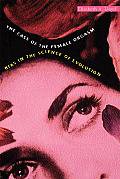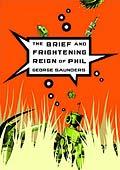The Case of the Female Orgasm
Bias in the Science of Evolution
by Elizabeth Lloyd
 Although this book has been panned by many biologists, I found this book totally convincing. It addresses the scientifically and politically sticky question of whether women's orgasms evolved because they're somehow advantageous, or whether they are an evolutionary by-product of natural selection favoring men who orgasm. It's fairly obvious why men orgasm: stripping it to its bare bones, it's about geting their genes into the woman. But what function would the women's orgasm have?
Although this book has been panned by many biologists, I found this book totally convincing. It addresses the scientifically and politically sticky question of whether women's orgasms evolved because they're somehow advantageous, or whether they are an evolutionary by-product of natural selection favoring men who orgasm. It's fairly obvious why men orgasm: stripping it to its bare bones, it's about geting their genes into the woman. But what function would the women's orgasm have?
Clearly women don't need to have an orgasm to get pregnant, but biologists have suggested that it helps bond men and women together, or that it has a mechanical function, helping women suck up sperm they want to keep and expel that which they don't. (Such things are known from the world of amphibians, for example, but there's little evidence for it in people.)
Lloyd picks apart all the competing stories and findings, and the only one that holds up is the byproduct view. For example, most of the theories that advocate an advantage for more orgasmic women fumble when they run into the data: there is huge variability amongst women in how easily they have orgasms. Some never can, some can with intercourse only with sufficient foreplay and "manual aid," and some can reach the big O simply by thinking. This doesn't jive at all with most of the ideas that orgasm is an adapation.
Some feminists have objected to the byproduct view, seeing it as belittling to women. But Lloyd counters that part of the project of feminism was to liberate women from being defined biologically, as the child-bearing sex. So implying that women's orgasms must have been naturally selected to be important runs counter to this feminist push, Lloyd argues. So it's not where orgasms came from that's important, but how people make the most of what they've got.
Get it from Powell's Books.
by Elizabeth Lloyd
 Although this book has been panned by many biologists, I found this book totally convincing. It addresses the scientifically and politically sticky question of whether women's orgasms evolved because they're somehow advantageous, or whether they are an evolutionary by-product of natural selection favoring men who orgasm. It's fairly obvious why men orgasm: stripping it to its bare bones, it's about geting their genes into the woman. But what function would the women's orgasm have?
Although this book has been panned by many biologists, I found this book totally convincing. It addresses the scientifically and politically sticky question of whether women's orgasms evolved because they're somehow advantageous, or whether they are an evolutionary by-product of natural selection favoring men who orgasm. It's fairly obvious why men orgasm: stripping it to its bare bones, it's about geting their genes into the woman. But what function would the women's orgasm have?
Clearly women don't need to have an orgasm to get pregnant, but biologists have suggested that it helps bond men and women together, or that it has a mechanical function, helping women suck up sperm they want to keep and expel that which they don't. (Such things are known from the world of amphibians, for example, but there's little evidence for it in people.)
Lloyd picks apart all the competing stories and findings, and the only one that holds up is the byproduct view. For example, most of the theories that advocate an advantage for more orgasmic women fumble when they run into the data: there is huge variability amongst women in how easily they have orgasms. Some never can, some can with intercourse only with sufficient foreplay and "manual aid," and some can reach the big O simply by thinking. This doesn't jive at all with most of the ideas that orgasm is an adapation.
Some feminists have objected to the byproduct view, seeing it as belittling to women. But Lloyd counters that part of the project of feminism was to liberate women from being defined biologically, as the child-bearing sex. So implying that women's orgasms must have been naturally selected to be important runs counter to this feminist push, Lloyd argues. So it's not where orgasms came from that's important, but how people make the most of what they've got.
Get it from Powell's Books.


